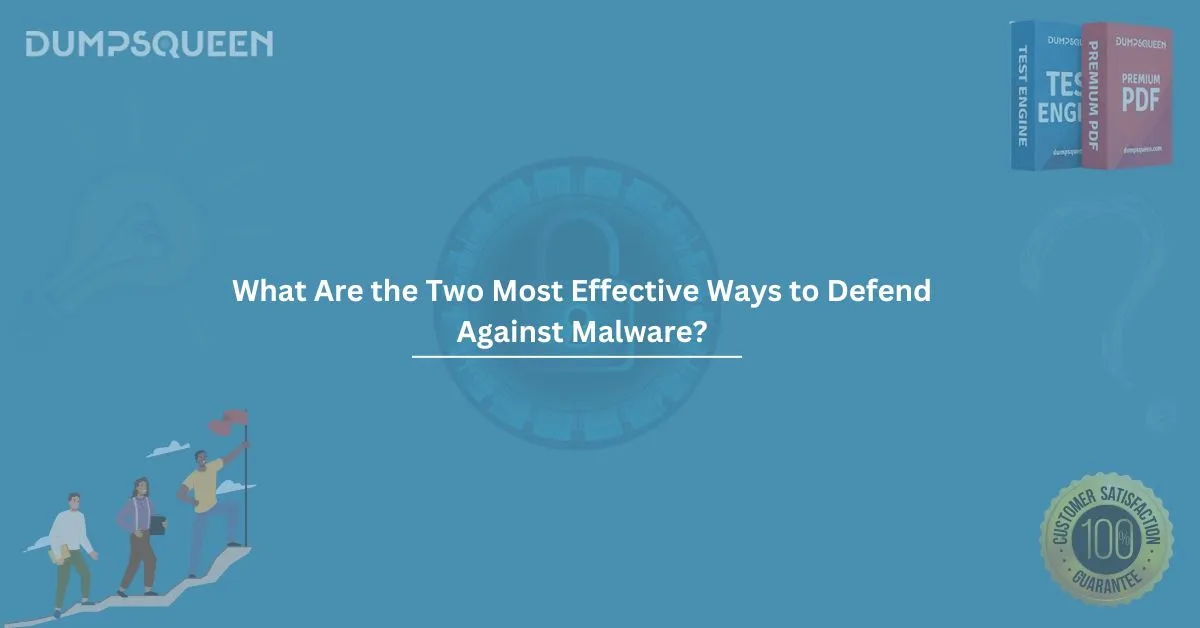In the ever-evolving landscape of cybersecurity, malware poses a significant threat to individuals, businesses, and even entire industries. Malicious software can cause devastating damage, ranging from data breaches and identity theft to system crashes and financial loss. Defending against malware is, therefore, a crucial component of any security strategy.
While there are numerous techniques available to prevent malware attacks, two methods stand out as the most effective in defending against this digital menace. These approaches are regular software updates and using robust antivirus protection. In this blog, we will delve into these two strategies, examining their importance and how they can be implemented to keep your systems safe from malware attacks.
1. Regular Software Updates: A Vital Shield Against Malware
One of the simplest yet most effective ways to defend against malware is to keep your software up to date. This includes your operating system, applications, and security software. Malware creators constantly exploit vulnerabilities in outdated software to gain access to systems. By regularly updating software, you ensure that these vulnerabilities are patched before they can be exploited.
Why Are Software Updates So Important?
Vulnerabilities are weaknesses in software that can be exploited by attackers. These vulnerabilities are typically discovered by security researchers or hackers, and once they’re identified, the software vendor often releases a patch to fix the issue. If these patches aren’t applied, attackers can exploit the known vulnerabilities to install malware.
Software updates are designed to fix a range of problems, including:
- Security vulnerabilities: Keeping your software up to date helps protect against known exploits.
- Performance improvements: Updates often fix bugs and improve the overall performance of the software.
- Feature enhancements: Many updates include new features that help improve security and functionality.
By ensuring that your system is up to date, you’re significantly reducing the attack surface that malware could exploit.
How to Keep Your Software Up to Date
- Enable Automatic Updates: Most modern operating systems and applications offer the ability to automatically install updates. Enabling this feature ensures that your system stays up to date without manual intervention.
- Regularly Check for Updates: Even with automatic updates, it’s essential to periodically check for updates, especially if the software doesn’t update automatically or if you’re using older software versions.
- Stay Informed About Updates: Follow the vendor’s website, social media channels, or newsletters to stay informed about critical security updates and patches.
By staying on top of software updates, you can ensure that your system is less vulnerable to malware attacks.
2. Robust Antivirus Protection: Your First Line of Defense
While keeping software up to date is crucial, it’s not enough to rely solely on this measure to prevent malware. The second most effective way to defend against malware is to use robust antivirus software. Antivirus programs act as your first line of defense against malware by identifying, isolating, and removing malicious files before they can do harm.
How Does Antivirus Software Work?
Antivirus software uses a combination of techniques to detect malware:
- Signature-based detection: Antivirus programs maintain a database of known malware signatures (unique identifiers). They compare files on your system against these signatures to identify threats.
- Heuristic-based detection: Antivirus software also uses heuristics to identify new or unknown malware. It looks for suspicious behaviors or file structures that are commonly associated with malware.
- Behavioral analysis: Antivirus programs can monitor system activities in real time. If a program starts performing suspicious actions, such as encrypting files or attempting to connect to an unusual external server, the antivirus can flag it as potentially malicious.
- Sandboxing: Some antivirus software isolates suspicious programs in a secure environment to analyze their behavior before allowing them to interact with the rest of the system.
Why Is Antivirus Protection Necessary?
While operating system updates and patches are essential, malware creators are often quick to exploit newly discovered vulnerabilities. Antivirus software adds an additional layer of protection by continuously scanning for known and unknown malware. Even if a vulnerability is exploited, antivirus software can catch the malware before it can do any serious damage.
Choosing the Right Antivirus Protection
Not all antivirus software is created equal. To get the most effective defense against malware, it’s essential to select a reliable and reputable antivirus program. Some key features to look for include:
- Real-time protection: This feature actively monitors your system for potential threats, offering continuous protection.
- Frequent updates: Malware evolves rapidly, so your antivirus software should receive regular updates to keep up with the latest threats.
- Multi-layered defense: The best antivirus solutions use a combination of techniques, such as signature-based detection, behavioral analysis, and sandboxing, to offer comprehensive protection.
- Low system impact: Good antivirus software should not slow down your system significantly while running in the background.
Investing in a quality antivirus program is an essential part of any cybersecurity strategy.
Conclusion: Combining the Two Methods for Maximum Protection
While regular software updates and antivirus protection are two of the most effective ways to defend against malware, the key to true security lies in combining both strategies. Keeping your software up to date ensures that any security vulnerabilities are patched, while antivirus software provides active, ongoing protection from known and unknown malware threats.
By adopting these practices, you can significantly reduce your risk of falling victim to a malware attack. But remember, cybersecurity is a continuous process. Stay informed, remain vigilant, and regularly update both your software and antivirus protection to maintain a strong defense against malware.
Sample Questions and Answers (MCQs)
1. Why is keeping software up to date crucial for defending against malware?
a) It improves the performance of the software.
b) It patches vulnerabilities that could be exploited by attackers.
c) It adds new features to the software.
d) It reduces the need for antivirus protection.
Answer: b) It patches vulnerabilities that could be exploited by attackers.
2. What is the role of antivirus software in defending against malware?
a) It updates the operating system automatically.
b) It acts as the first line of defense by identifying and removing malicious software.
c) It encrypts files to protect against malware.
d) It only protects against known malware threats.
Answer: b) It acts as the first line of defense by identifying and removing malicious software.
3. Which of the following is a recommended action to keep your system secure from malware?
a) Ignore software updates unless a significant feature is added.
b) Use only free antivirus software.
c) Enable automatic software updates and use a reliable antivirus program.
d) Never update your software to avoid potential bugs.
Answer: c) Enable automatic software updates and use a reliable antivirus program.
4. Which antivirus feature helps identify unknown malware by analyzing suspicious behaviors?
a) Signature-based detection
b) Heuristic-based detection
c) Real-time protection
d) Sandboxing
Answer: b) Heuristic-based detection




